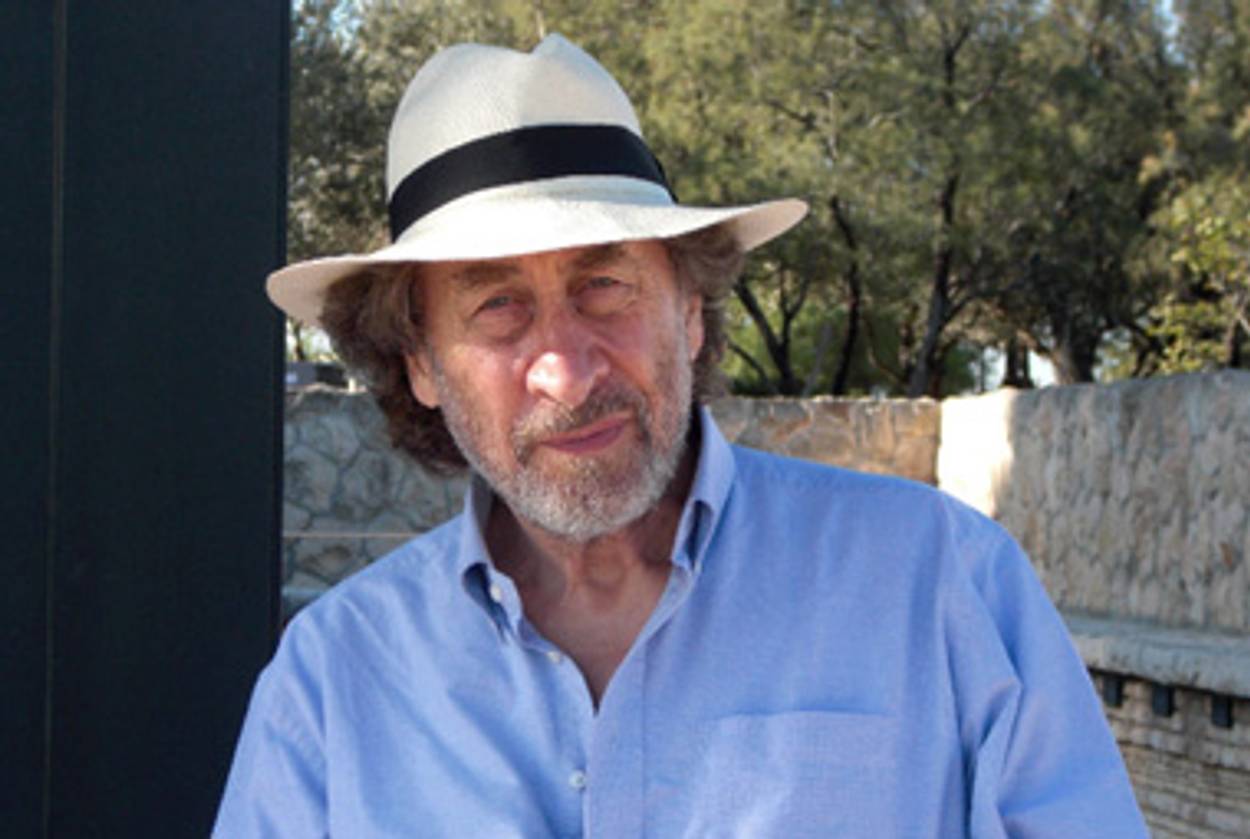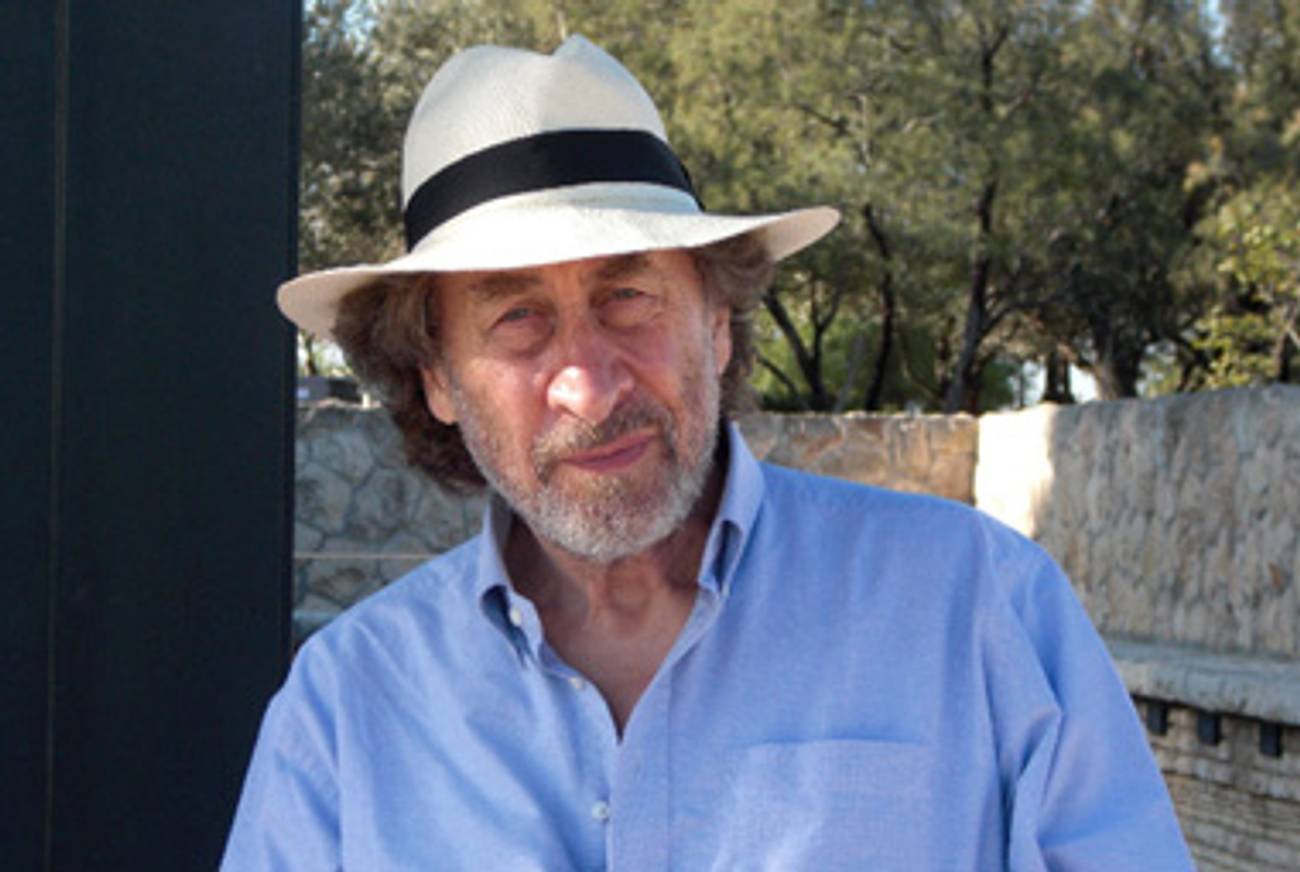Mirror Images
In The Finkler Question, Howard Jacobson sees Jewish shame and non-Jewish philo-Semitism as two sides of one coin




Earlier this year, Anthony Julius’ Trials of the Diaspora, an encyclopedic chronicle of English anti-Semitism, set off a debate about the alleged resurgence of that historic sickness in the form of anti-Zionism. Criticism of Israel, Julius argued, had become an acceptable cover for some on the British left to disinter the ancient tropes of Jew-hatred, including accusations of blood-lust and conspiracy. This rhetoric, combined with a wave of hate crimes against British and European Jews by Muslim immigrants, led Julius to conclude that the post-Holocaust “closed season” on Jews was over. Yet Julius also took note of one of the strangest features of this new quasi-anti-Semitism: Some of its most vocal exponents were themselves Jews.
It is against this background that Howard Jacobson, the acclaimed English novelist (author of Kalooki Nights and The Act of Love, among other books), has set off the pyrotechnical provocation that is The Finkler Question. This novel, just published in the United States as a paperback original, made the shortlist for the 2010 Booker Prize, which will be awarded next week; and the overwhelmingly positive response of the English reviewers adds yet another layer to Jacobson’s complex comedy. For this is a book in which a Jewish writer has invented a non-Jewish hero who is so obsessed with Jews that he wants to be Jewish, and a Jewish hero who is so ashamed of Jews that he tries to flee Jewishness. The result is a hall of mirrors, in which every conceivable stereotype about Jews ends up being voiced by someone or other. Jews, we are told, are insular and clannish, but also worldly and sophisticated; ethical universalists and instinctive Zionists; exceptionally warm and exceptionally cold; sexually inviting and sexually unfaithful; eager to assimilate and impossible to assimilate. Behind all these dueling stereotypes we hear the voice of Jacobson himself, his laughter sounding increasingly desperate, as he depicts a 21st-century Britain where Jews, still, constitute an all-too-fascinating “question.”
The Finkler Question is, in fact, another name for the Jewish question. Samuel Finkler, the book’s Jewish protagonist, is a pop philosopher-turned-media personality, the author of books like The Existentialist in the Kitchen and The Little Book of Household Stoicism. He is also, as intellectuals in comic novels tend to be, a philanderer, careerist, and hypocrite. It is his self-love that leads him, during an appearance on the popular BBC radio program Desert Island Discs, to make a sanctimonious speech about how “in the matter of Palestine, I am profoundly ashamed.” It is characteristic of Jacobson’s topsy-turvy comedy that Finkler’s wife, Tyler, thinks this self-aggrandizing declaration is repulsive—“I’m ashamed of your public display of shame and I’m not even Jewish,” she tells him—while “a number of well-known theatrical and academic Jews” write to praise him for it. In fact, they decide to form an organization in his honor, “Ashamed Jews,” which Finkler suggests spelling “ASHamed Jews”—“the particular felicity of which, in the circumstances, he was sure it wasn’t necessary for him to point out.”
This kind of outrageous joking about the Holocaust—later in the book, there is a riff about a Jew who has sex with a Holocaust denier—takes the book’s provocations to an extreme. But as with Philip Roth, Jacobson gives the sense that he is joking about Jewish obsessions not to make light of them, but to momentarily free himself from their crushing burden. Indeed, the conceit of The Finkler Question, which explains both its energy and its claustrophobia, is that everyone in the world is obsessed with Jewishness. “It was a password to madness,” Finkler ruminates. “Jew. One little word with no hiding place for reason in it. Say ‘Jew’ and it was like throwing a bomb.”
If, as Finkler says, “talking feverishly about being Jewish was being Jewish,” then no one is more Jewish than Julian Treslove, the novel’s non-Jewish protagonist and the source of its best comedy. Treslove, as Jacobson paints him, is an insubstantial man, unable to commit to women, his sons, or a career. (In case we don’t get the point, he works as a celebrity double, because he looks vaguely like so many other people.) His longing for a more dramatic and meaningful life finds a focus in his friendship with two Jews—Libor Sevcik, a Prague-born octogenarian, and Finkler, Treslove’s friend from his school days. Both men have recently lost their wives, and Treslove’s envy of their grief blends into his envy of their Jewishness.
It makes a kind of crazy sense, then, that when Treslove is mugged near Libor’s apartment, he convinces himself that he was the target of a mistaken anti-Semitic attack—and then convinces himself that maybe it wasn’t so mistaken after all. Could he himself be a Jew—or a “Finkler,” as he calls Jews to himself, in honor of his friend, the first one he met? This absurd hope—reinforced when a stranger at a party tells him he looks like Dustin Hoffman, or maybe Adam Sandler—leads Treslove on an odyssey of Jewish self-education, which allows Jacobson to joke about everything from Jewish cooking to Maimonides’ views on circumcision. Finally, it even leads Treslove to the gaudily named Hephzibah Weizenbaum, the fleshy, maternal ur-Jewess of his dreams. (And yes, there are jokes about how Jews don’t like the word Jewess.)
Treslove’s philo-Semitism, Jacobson shows, is the mirror image of Finkler’s shame. Both are founded on a deeply egotistical misperception of Jewishness, using it as a synonym for all kinds of things that really have nothing to do with being Jewish. The major difference between them is that the comedy Jacobson finds in Treslove is deeper and more humane than the satire he makes out of Finkler. Treslove’s haplessness makes him a basically sympathetic character, and Jacobson makes some fine comedy out of his serial infatuations with unsuitable women (along with a few good shots at the BBC, where Treslove used to work and which he hates with a passion). Finkler, on the other hand, leads Jacobson into a thicket of current debates about Anglo-Jewish identity and politics, where his tone alternates between bludgeoning, over-the-top satire, and committed moralizing.
This comes out above all in the sections of the novel dealing with the ASHamed Jews. Jacobson uses this group to explore the psychology of the type of Jewish anti-Zionist Julius wrote about, whose public affiliation with Jewishness consists of a repudiation of Jewishness. (Not by coincidence, the ASHamed Jews hold their meetings in London’s fashionable Groucho Club, named for the Jewish comedian who famously refused to belong to any club that would have him as a member.) Part of the fun of the book is matching Jacobson’s caricatures to their originals. Tamara Krausz, the fashionable Jewish academic whose diagnosis of “the breakdown of the Jewish mind” grounds her “never quite sufficiently reciprocated hatred of Zionism,” sounds a bit like Jacqueline Rose, author of The Question of Zion. The play Sons of Abraham, which “charted the agonies of the Chosen People from ancient times up until the present when they decide to visit their agonies on someone else,” evokes Caryl Churchill’s notorious Seven Jewish Children.
But Jacobson is too personally implicated in this debate over Anglo-Jewish identity to be able simply to laugh at it. Instead, in the last part of the novel, the portents for Anglo-Jewry get darker and darker. A Jewish museum is vandalized, an Orthodox schoolboy is mobbed in a park, and even Hephzibah starts to give in to Holocaust nightmares: “Well, it was a little hard to picture herself as a deportee in a thin floral dress, carrying a little suitcase, her eyes hollow with terror, as she strolled through leafy St. John’s Wood with her jewellery clinking and a bag costing fifteen hundred pounds under her arm. But the hollow-eyed woman in the floral dress—wouldn’t she have once found her fate hard to picture too? So was it paranoia? She didn’t know. No one knew.”
It is paranoia, of course. Britain is a country whose Labor Party recently elected a Jew, Ed Miliband, as its leader, not a country where Jews are about to be deported. But the power of Jewish history is such that paranoia is a standing temptation—one that, as Howard Jacobson knows, can sometimes be banished by the power of laughter.
Adam Kirsch is a poet and literary critic, whose books include The People and the Books: 18 Classics of Jewish Literature.
Adam Kirsch is a poet and literary critic, whose books include The People and the Books: 18 Classics of Jewish Literature.